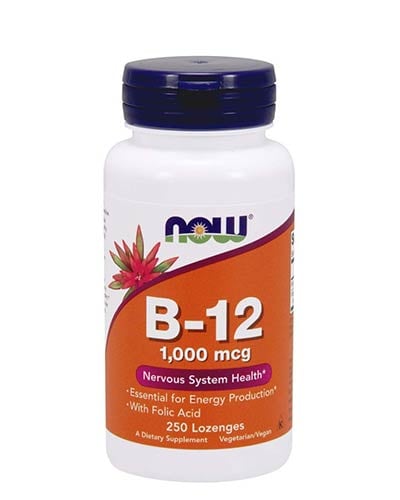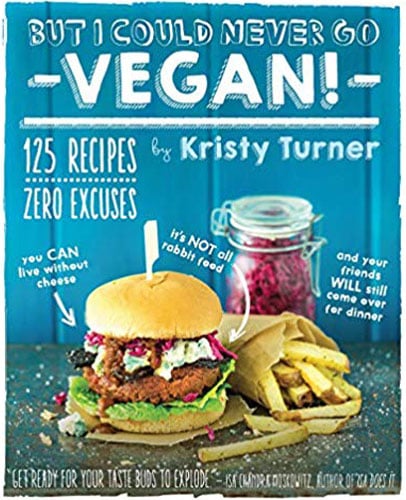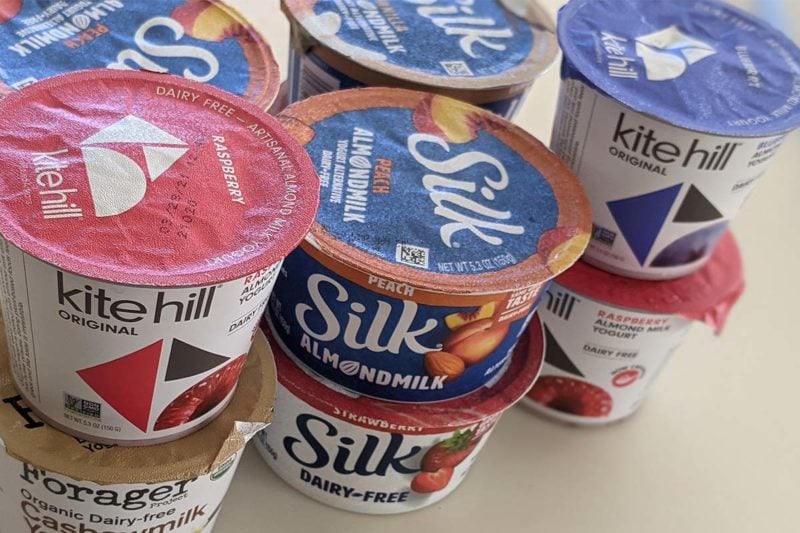Veganism means different things to different people, so let’s dive deeply into the question: “What is a vegan?”
What Does Vegan Mean?
Vegan and vegetarian diets both exclude meat and seafood. Vegan diets go a step further, though, by also nixing every other food of animal origin. So, in addition to avoiding meat, vegans steer clear of dairy products, eggs, and honey. Additionally, vegan foods never contain any byproducts of animal agriculture, such as lard, whey, or gelatin.
A vegan diet delivers powerful advantages over a vegetarian diet. Eating vegetarian merely reduces farm animal exploitation, whereas vegan diets eliminate every last bit of it. A vegan diet may also offer health and environmental advantages over diets that include dairy products and eggs. For these reasons, many vegetarians ultimately decide to go vegan.
Which Foods are Vegan?
Becoming vegan takes surprisingly little effort. Consider the enormous variety of vegan foods available:
- Vegetables
- Breads and Pasta (some contain animal products)
- Fruits and berries
- Rice, oats, and other grains
- Beans, tofu, and tempeh
- Vegan milks (soy, almond, pea, nut, hemp, etc.)
- Nuts
You won’t miss out on your favorite indulgences, either. Your dessert possibilities are sensational. Many of the most popular brands of chocolate, wine, and beer are vegan. You can even buy superb dairy-free creamers for your coffee.

The world’s great cuisines offer an endless variety of incredible vegan meals. Whether you go vegan for life or just try it out for a few weeks, you’ll never lack satisfying things to eat.
Vegan Foods are Everywhere!
Every supermarket stocks a vast assortment of vegan foods. And a good natural foods store offers even better options, including a wide selection of vegan meats, milks, yogurts, and cheeses. In the frozen section, you’ll find vegan waffles, burritos, and pizza. When it comes to sweets, you can buy vegan ice cream, chocolate, cookies, pies, and many more favorites. Better natural food stores sell at least one vegan alternative for every popular non-vegan food—cream cheese, mayo, eggs, you name it. And your options will only improve as time goes by, since vegan food companies constantly introduce delicious new products.
As for cooking, you can choose from hundreds of vegan cookbooks covering every conceivable niche. You’ll never find vegan food monotonous because some of the easiest vegan meals are also the most versatile. You need never make any of these easy meals the same way twice:
When dining out, you can visit thousands of vegan restaurants worldwide. And all the best fast food chains are rushing to add vegan items to their menus. So, don’t let anyone persuade you that a vegan diet is difficult or lacks variety!
Vegan Non-Food Items
The vegan concept often extends beyond food. People also make use of the vegan term when referring to clothing, cosmetics, and other consumer goods.
Whatever the item, you can call it vegan if it contains nothing produced by or derived from animals. So, for instance, a leather jacket is not vegan. But you can certainly buy a vegan leather jacket; several companies make high-quality vegan leather.
Controversies Over How to Define Vegan
Vegan can refer to a sandwich, a car seat, a shampoo, or a person. Unfortunately, the word’s remarkable flexibility leads to bickering over competing definitions. Some people will never be happy with any definition that’s not their own, but it’s nevertheless productive to consider the various ways we might define the word and apply it to various circumstances.
Some vegans insist on an absurdly restrictive definition. I’ve even heard vegans assert that only people motivated by animal protection can be vegan. Everyone else, they argue, is merely “plant-based,”—even if they eat no animal products at all. What an obnoxious distinction! It almost seems calculated to antagonize people contemplating dietary change.
Motivation is irrelevant to who gets to call themselves a vegan. Feeling compassion toward animals is just one reason to shift your diet toward plants. You might alternately go vegan in hopes of improving your health, or to reduce your environmental footprint. Whatever a person’s motivation, what possible benefit arises from requiring all vegans to share a particular reason for ridding their diets of animal products?
Now certainly, animal protection considerations ought to be part of most vegan conversations. Everyone should learn about the endless horrors of factory farming. Powerful concepts like animal rights and ahimsa likewise deserve careful study by every vegan advocate.
Plant-Based vs. Vegan
I get irritated hearing the term “plant-based” used as code for a second-class vegan unmotivated by animal rights considerations. But the term does serve a valuable purpose in other contexts.
Plant-based can sensibly refer to a less strict alternative to veganism that offers some deliberate wiggle room. For instance, let’s say you eat nothing but vegan food except for a couple pieces of chicken a month. We could call your diet plant-based since it’s almost entirely made up of plants. But we would certainly never call this diet vegan.
Where meals are concerned, plant-based food may contain entirely vegan ingredients or it may contain tiny amounts of animal products. Food companies have repeatedly used the plant-based term to refer to non-vegan products, so it’s important for vegans to not assume that all foods labeled plant-based are vegan.
On the whole, I think the term plant-based is valuable. It can inspire important changes among people who want to eat mostly vegan while having some flexibility to cheat. Now, let’s turn back to veganism. Towards the end of this essay I’ll try to define vegan in the most reasonable and inspiring terms that addresses the various issues we’ll confront over the course of this article. But let’s begin by reviewing the very first definition offered for the word.
The Original Definition of Vegan
Donald Watson coined the term “vegan” in 1944. That year, in the debut issue of his newsletter The Vegan News, he introduced the word and defined its meaning:
We should all consider carefully what our Group, and our magazine, and ourselves, shall be called. ‘Non-dairy’ has become established as a generally understood colloquialism, but like ‘non-lacto’ it is too negative. Moreover it does not imply that we are opposed to the use of eggs as food. We need a name that suggests what we do eat, and if possible one that conveys the idea that even with all animal foods taboo, Nature still offers us a bewildering assortment from which to choose. ‘Vegetarian’ and ‘Fruitarian’ are already associated with societies that allow the ‘fruits’ (!) of cows and fowls, therefore it seems we must make a new and appropriate word. As this first issue of our periodical had to be named, I have used the title “The Vegan News”. Should we adopt this, our diet will soon become known as a VEGAN diet, and we should aspire to the rank of VEGANS. Members’ suggestions will be welcomed. The virtue of having a short title is best known to those of us who, as secretaries of vegetarian societies have to type or write the word vegetarian thousands of times a year!
In the above passage, Watson did an admirable job of laying out the vegan concept in clear and inspiring terms. You’ll notice that he defined vegan solely in terms of diet. But even if we restrict our definition exclusively to food, it turns out that all sorts of edge cases exist. Let’s contemplate some of these.
Vegan Food Produced in Non-Vegan Facilities
Where food is concerned, determining a particular food’s vegan status seems simple enough: if the item contains no animal ingredients, it’s vegan. I don’t see any harm here in erring on the strict side. For instance, a chocolate bar that contains just one percent milk powder should not qualify as vegan.
But now I’ll throw you a curve ball. Some chocolate bars made exclusively from vegan ingredients nevertheless contain traces of milk. This paradox occurs because they were produced on the same manufacturing line as milk chocolate bars. Ditto for several other foods like vegan ice cream.
These products often carry a declaration on the ingredients panel stating something like, “may contain traces of milk.” These warnings exist to alert consumers who have severe allergies.
Since these foods aren’t formulated with non-vegan ingredients, I believe you can sensibly call themfoods vegan. They don’t fund animal exploitation, and to whatever extent you ingest a few molecules of milk because your vegan product shares a manufacturing line, an omnivore inevitably consumes a few extra vegan molecules that came from your product. To deny these foods vegan status could create the impression that vegans have absurdly strict standards. And that, in turn, could cause people to reject the vegan concept entirely.
The same goes for veggie burgers cooked on the same grill as hamburgers. This cooking method doesn’t cause the slightest harm to animals. You might reasonably decide to avoid eating a veggie burger cooked this way due to personal disgust. But to assert such food isn’t vegan amounts to virtue signaling that’s likely to confuse and annoy people interested in a vegan diet.
Problems That Veganism Can’t Address
Veganism offers by far the most effective way to rid your diet of foods tied to animal cruelty and slaughter. But a vegan diet can’t root out all exploitation associated with your food choices, since many widely-planted crops involve objectionable farming practices.
Consider palm oil, which is made by squashing palm fruit and squeezing out the oil. What food could possibly be more vegan? Yet the industry is a primary force behind cutting down rainforest—in the process exterminating at least a thousand endangered orangutans every year. Or consider coffee and chocolate, two tropical crops often harvested by slaves.
Other foods carry hidden but horrific human costs. For instance, workers who process cashews often suffer disfiguring skin damage to their hands. This harm arises from the caustic oils coating the inedible fruit, which is manually removed from each nut.
Many of the world’s farmworkers toil under abominable working conditions and receive extremely low pay. And even the most sustainable small-scale farming often involves killing. The farmer growing your local organic lettuce may poison gophers or shoot deer who threaten the crop. Pesticides applied to orchards and fruit crops likewise inflict grievous harm on honey bee populations.
Vegan Doesn’t (and Cannot) Mean Perfect
As the examples we’ve just reviewed make clear, some vegan foods involve abhorrent farming practices. It’s therefore tempting to redefine veganism to exclude any and all exploitation of humans and wildlife.
Unfortunately, gaining consensus on such a redefinition would prove impossible, and the attempt quickly renders the word useless. Revoking the vegan status of crops farmed in particularly unethical ways would require everyone to agree on where to draw the line. Some people might only want to exclude palm oil grown on newly-cleared rain forest, while others would demand the exclusion of dozens more food crops. The word vegan would become meaningless, since nobody could agree on the criteria establishing which foods would qualify.
 Your vegan options include all sorts of simple yet gourmet dishes like this breakfast of granola, shredded coconut, and fresh berries.
Your vegan options include all sorts of simple yet gourmet dishes like this breakfast of granola, shredded coconut, and fresh berries.
Moving Beyond the Vegan Concept
As we’ve seen, veganism can’t address every ethical concern regarding food. Nevertheless, if you want to eat in the least harmful manner, a vegan diet accomplishes a great deal. You can always go beyond the vegan concept when warranted. For instance, vegan chocolate protects cows, whereas fair-trade vegan chocolate protects cows and people.
Practically all vegans oppose exploitative methods of food production, even when the item in question happens to be vegan. For the most problematic vegan foods, superior alternatives nearly always exist. Sometimes it’ll be a sustainably grown version of the food, and sometimes it’ll be another choice entirely. Your food may end up costing more, since fair-trade certified foods invariably carry a premium. But overall, it takes minimal effort and expense to better align your food purchases with your values.
Crops grown or harvested in odious ways are most sensibly regarded as vegan, yet still utterly objectionable. Although food production operates under enormously complex ethical realities, we can keep the definition of vegan clear and straightforward.
Simply going vegan doesn’t solve every ethical problem related to how we eat, but it’s a perfect starting point. Veganism gives us a solid foundation to build on while we work individually and collectively to rid our food system of its remaining injustices.
Vegan as an Identity
Could any debate reflect greater narcissism than who gets to call themselves a vegan? Whenever possible, I prefer to sidestep the topic—or, better yet, sprint in the opposite direction.
I rarely tell people I’m vegan, because doing so suggests I base my identity on this lifestyle choice. Focusing on personal identification often draws attention to how you differ from others. This inevitably complicates the task of finding common ground on important points.
So instead of telling people, “I’m vegan,” I prefer to say, “I eat a vegan diet.” If I want to communicate that I avoid animal products in both my food and non-food purchases, I’ll say, “I follow a vegan lifestyle.”
I try to keep my own choices out of discussions related to veganism. The less the conversation focuses on me the better. I’d rather direct attention toward the cruelty and environmental harms caused by animal agriculture, and the wealth of excellent vegan alternatives.
Having said all this, let’s not forget that veganism was originally defined purely in terms of food. So, if somebody wearing a leather belt tells me she’s vegan, I won’t protest. I think we all have better things to worry about.
And it’s not as if rigidly adhering to a vegan lifestyle guarantees a kindhearted and exemplary character, anyway. Some well-known vegans are among the most despicable people I’ve ever encountered. Expecting decency and integrity from someone just because they follow a vegan diet can leave you bitterly disappointed. Instead, think of veganism as just one more avenue toward becoming a better person, like telling the truth, keeping your speech kind, and refusing to steal.
Flexible Definitions Save Animals
Many animal advocates don’t want to merely reduce animal suffering—they want to eliminate it outright. Therefore, they commonly define veganism in the most rigid possible terms. But imposing onerous standards, especially upon newcomers, can needlessly repel people. Animal byproducts will automatically disappear from people’s lives as we transition toward a vegan world, as one slaughterhouse after another shuts down. For that to happen, we must talk about veganism in ways that motivate the majority of people to shift their diets towards plants.
To push vegan lifestyles into the mainstream, we must strive to avoid saying things that scare people off. As vegan advocates, our key task is to discuss the topic in ways that entice and encourage. I often use the foot-in-the-door technique, which seeks to convince people to make a small but immediate change in a vegan direction. Even the tiniest concession today can lead to much bigger changes tomorrow.
What could be more counterproductive than imposing aggressive demands on brand new vegans? Newcomers need to focus on the big picture: ridding their diets of meat, eggs, and dairy products. Those commitments can feel overwhelming at first. Must we demand that new vegans also immediately purge their closets of leather shoes, or to worry about the fourteenth ingredient of their shampoo?
The Plumber’s Snake
Like many people who’ve followed this lifestyle for decades, I avoid making veganism a big part of my identity. Even during long conversations about food politics, I rarely feel compelled to disclose that I’m vegan. And I refuse to take the word too seriously, especially as a marker for who I am as a person. I see the vegan concept much the same way I regard a plumber’s snake. It’s merely a tool to get a job done.
I use the word vegan in whatever sense I can to inspire change. Just like a plumber’s snake does its job by bending this way and that in order to clear obstructions, I bend the word vegan in whichever way suits my purpose at the moment.
Can You Be “Mostly Vegan”?
Here are some phrases I often use in order to nudge people toward plant-based lifestyles:
- 80 percent vegan
- vegan test-drives
- vegan at home
- mostly vegan
- vegan before 6:00
These phrases enrage vegan fundamentalists. They’ll insist, “mostly vegan” makes no more sense than, “mostly pregnant.” Often they’ll even feign confusion over what “mostly vegan” or “80 percent vegan” is supposed to mean.
But these terms aren’t the slightest bit confusing, and I presume that the people I talk to possess a functional level of intelligence. Qualifiers like “mostly” or “80 percent” can add to the vegan concept’s utility, while inspiring whatever steps forward each person feels ready to take.
Two Contemporary Definitions of Vegan
Now that we’ve exhaustively reviewed the most important areas of contention surrounding the vegan concept, let’s try to define the term in the clearest and most sensible way.
Since its founding by Donald Watson and others in 1944, the Vegan Society has continued to this day. Over time, the organization has revisited the task of defining veganism, and produced this effort:
Veganism is a philosophy and way of living which seeks to exclude—as far as is possible and practicable—all forms of exploitation of, and cruelty to, animals for food, clothing or any other purpose; and by extension, promotes the development and use of animal-free alternatives for the benefit of animals, humans and the environment. In dietary terms it denotes the practice of dispensing with all products derived wholly or partly from animals.
Since that definition sounds like it was written by a committee, I want to offer my own:
Vegan refers to any food formulated without ingredients produced by or derived from animals, or any diet consisting exclusively of these foods. A vegan lifestyle, whenever safe and practical, additionally avoids the use of any products linked to animal exploitation.
You’ll notice that my definition isn’t just simpler and briefer, it also removes motivation from consideration.
Why Personal Motivation Is Irrelevant
The main difference between the Vegan Society’s definition and mine is they view veganism as a philosophy bundled with a set of beliefs. I view veganism as a practice that carries a multitude of large and small benefits. I think my approach offers greater simplicity. Plus, it’s less likely to lead to arguments and confusion.
What possible benefit exists for refusing to call someone vegan if their diet contains not a trace of animal products? That seems petty and pointless. Humility is crucial in any sort of activism. While I personally follow a vegan lifestyle for animal protection reasons, who am I to judge that somebody’s reasons to avoid animal products possess less merit than my own?
Put another way, it’s fine to promote whatever you regard as the most powerful reasons for avoiding animal products. But it’s not so fine to assert that unless people swear off animal products for those particular reasons, they can’t consider themselves vegan.
Since no definition can please everyone, I consider neither my definition nor the Vegan Society’s to offer the final word on the matter. Even though we can’t define veganism in a way that inspires unanimous agreement, we can all certainly agree it’s desirable to move in a vegan direction. As long as you use the vegan concept to eliminate demand for animal products, there seems little reason to fixate on finding the One True Definition.
Attitude Is Everything
Some vegans base their entire identity on their diet and lifestyle. These people typically try to keep the definition of vegan as exclusionary as possible. Veganism becomes all about reinforcing their personal sense of identity.
This sort of behavior amounts to vegan fundamentalism. And no form of fundamentalism, whether spiritual or secular, ever gains widespread appeal. The rigidity of fundamentalist thinking inevitably repels the bulk of society. If we want plant-based lifestyles to become the norm, we gotta be cool. That means using the vegan concept to invite and encourage rather than as a means of exclusion.
Now that we have carefully explored the word’s meaning, more important topics await. Specifically, it’s time to move past what vegan means, to why people embrace this concept.
My “Why Go Vegan?” essay explains the most compelling reasons to go vegan. You can finish the piece in under an hour. If you find its arguments persuasive, you’ll also want to check out my “How to Go Vegan” guide. Ridding your life of animal products requires surprisingly little effort.
And if you want to encourage people to consider a vegan lifestyle, my activism guide shares the most effective tactics and strategies.
Keep Things Simple and Easy
When moving toward a vegan lifestyle, start with diet. This delivers the biggest and easiest payoff since the overwhelming majority of animal exploitation arises from food production. Adding more vegan foods to your life is so easy. You have countless delicious vegan foods to discover, so try new ones at every opportunity. You should also read up on vegan nutrition to guard against coming up short on key nutrients.
As your diet becomes increasingly plant-based, you may decide to also transition your clothing and personal care purchases. Start by reviewing our list of common animal ingredients and then check out our beauty and apparel guides.
Vegan is undoubtedly the most powerful word ever coined in the service of animal protection. Unfortunately, the word often gets twisted in ways that repel mainstream audiences. I’ve therefore sought to define the term in a spirit that unlocks its full power, without coming off as rigid or preachy. I hope you’ll use the vegan concept in whichever ways enable you to remove animal products from your life, while inspiring others to do the same.


